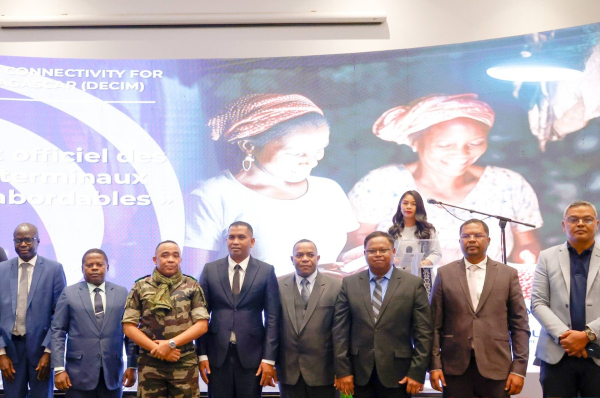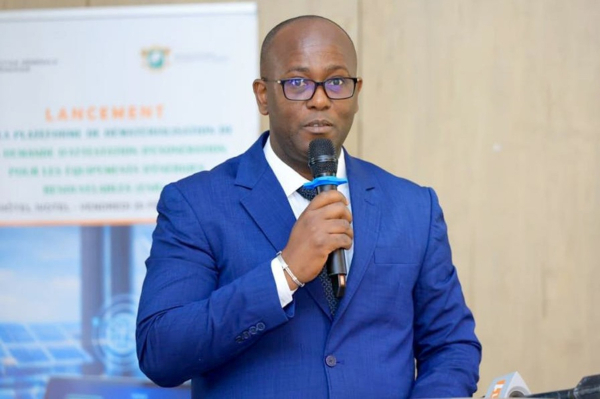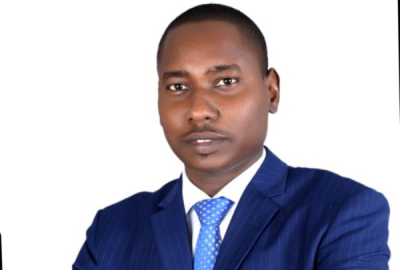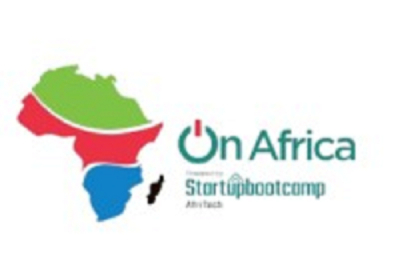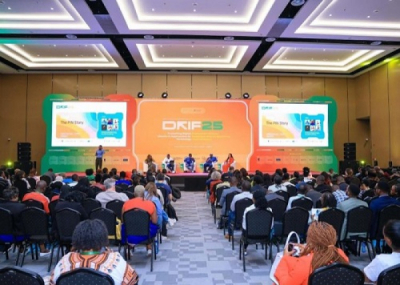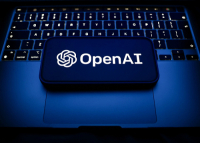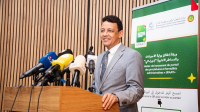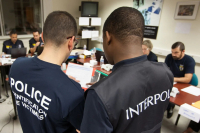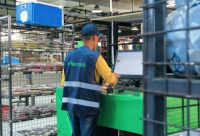-
The government launched a subsidized sale of 664,000 digital devices, including 400,000 reserved for women and girls.
-
Authorities financed the scheme under the $24 million DECIM fund to expand affordable access to digital equipment.
-
Only 18.7% of the population used the Internet in 2024, highlighting a wide digital gap.
Officials officially launched on February 21 a national program to sell 664,000 subsidized digital devices. The program allocates 400,000 units to women and girls. The initiative seeks to expand access to digital terminals, reduce the digital divide, and strengthen sustainable digital inclusion, particularly for women and youth.
The government has structured the program around a network of nine contracted official distributors to ensure process transparency, equipment accessibility and gradual nationwide coverage, including rural areas. Authorities have integrated the initiative into the “Affordable Digital Equipment” subcomponent of the $24 million Digital and Energy Connectivity for Inclusion in Madagascar (DECIM) fund.
Authorities first unveiled the program in April 2025 as part of a broader strategy to support socio-economic development through digital transformation. The Digitization Strategic Plan (PSN) 2023–2028 frames this strategy and sets a roadmap to position Madagascar as a leading player in Africa’s digital economy. The plan emphasizes telecommunications development, e-government and digital inclusion. Authorities expect the digital sector to contribute 6% to GDP by 2028, compared with 1.5% in 2019.
However, Madagascar continues to face a pronounced digital divide. According to the International Telecommunication Union (ITU), only 18.7% of the population used the Internet in 2024. The World Bank estimates the population at 32.9 million. The GSMA notes that smartphone affordability remains a major barrier to Internet adoption, even in areas already covered by networks, despite devices now retailing for under $100.
At the same time, the scale of the initiative remains modest relative to the population still excluded from digital services. Authorities have not announced subsequent phases or a precise timeline for expansion.
Access to smartphones alone does not guarantee adoption and effective use of digital services. Network coverage also constrains inclusion. ITU data show that 2G and 3G networks covered 88.5% and 69.2% of the population respectively at end-2023. Meanwhile, 4G coverage reached 34.6% in 2024, and 5G covered only 6.12%. High Internet costs, limited digital skills, security concerns, connectivity quality and the perceived relevance of digital services for some communities further limit uptake.
Digital infrastructure can unlock productivity gains, but hardware subsidies represent only one piece of a broader structural equation that includes connectivity, affordability and trust in digital ecosystems.
Isaac K. Kassouwi
-
Authorities launched an online platform to process VAT, banking tax and customs duty exemptions for renewable energy equipment.
-
Importers can now submit and track applications digitally through a system developed with the Single Window for Foreign Trade.
-
Ivory Coast targets 42% to 45% renewable energy in its power mix by 2030.
The Ivorian administration has intensified its transition toward e-government. Authorities have expanded digital public services, including recently launched sectoral platforms, as part of a strategy to modernize public action and facilitate user access to administrative procedures.
#Économie | Modernisation de l'administration énergétique: la plateforme digitalisée de demande d'Attestation d'Exonération de la TVA officiellement lancée
— Gouvernement de Côte d'Ivoire (@Gouvciofficiel) February 21, 2026
Abidjan, le 20 février 2026- Le directeur général de l'Énergie, Narcisse Kalifa Éhouman, a lancé officiellement, le… pic.twitter.com/WkzpBQLmz4
The Directorate General of Energy launched on February 20 in Abidjan an online platform dedicated to applications for exemptions from value-added tax (VAT), the banking operations tax (TOB) and customs duties on renewable energy equipment. Officials designed the initiative to simplify administrative procedures, reduce processing times and secure the review of files linked to clean energy investments.
Director General of Energy Narcisse Kalifa Éhouman stated that the platform represents a major step forward in the digital transformation of the energy administration. “Thanks to this platform, developed in close collaboration with the Single Window for Foreign Trade, importers will now be able to submit their applications online, track the progress of their files in real time, and interact with the administration in a more fluid, efficient, and transparent manner.” he explained.
Authorities expect the digitalization of these procedures to shorten review times, improve traceability of administrative decisions and strengthen the reliability of file assessments. By centralizing exemption requests, the government aims to lower investment costs for solar, wind and hybrid projects while providing a clearer operational framework for industry players.
The launch forms part of Ivory Coast’s broader strategy to modernize public administration through the dematerialization of services. In recent years, authorities have accelerated digitalization by automating foreign trade formalities, expanding online tax services and gradually integrating digital tools into the management of economic public services.
The initiative coincides with the acceleration of the national energy transition. Ivory Coast aims to raise the share of renewable energy in its electricity mix to between 42% and 45% by 2030. Authorities are developing several solar and energy infrastructure projects to support growing electricity demand.
The digitalization of exemptions for renewable energy equipment aligns with a wider e-government drive to enhance administrative transparency, improve the business climate and facilitate private investment. The Ivorian state plans to progressively extend dematerialization to other sectoral procedures, enabling centralized and online monitoring of applications.
This article was initially published in French by Samira Njoya
Adapted in English by Ange J.A de Berry Quenum
-
Brahim Moussa Hassane co-founded Konoom Mobile Money in 2025 to provide fully digital financial services in Chad.
-
The platform enables real-time transfers, bill payments and government tax payments without requiring a traditional bank account.
-
Konoom targets both individuals and businesses to expand financial inclusion nationwide.
Brahim Moussa Hassane co-founded and leads Konoom Mobile Money as chief executive officer. The fintech company specializes in electronic money payments and serves both individuals and businesses.
Founded in 2025, Konoom Mobile Money operates a fully digital financial services platform. The platform allows users to send, receive and pay money without relying on a traditional bank. The company aims to give every Chadian the ability to manage daily finances independently, regardless of geographic location or access to conventional banking services.
The platform processes real-time money transfers across multiple channels, including Konoom wallets, bank accounts and agent outlets. It enables users to pay utility bills such as electricity, water, television and telecommunications, along with other essential services, through a single interface. It also allows users to pay government taxes and duties directly from the wallet through a secure portal.
Konoom Mobile Money relies on a digital wallet that allows users to deposit, store, send and withdraw funds. The wallet functions as a central tool for managing daily expenses without requiring a bank account. Users can fund the wallet through bank transfers, an agent network or mobile money channels, and the system makes funds immediately available for transactions.
Brahim Moussa Hassane graduated from the Université catholique de l’Afrique de l’Ouest (UCAO) in Senegal in 2013 with a bachelor’s degree in accounting and finance. He later earned a master’s degree in investment and corporate governance, with a specialization in financial engineering, in 2015 from Groupe ISM in Dakar.
He began his professional career in 2014 as a consultant at MCG Afrique. He joined Orabank in Chad from 2018 to 2021, where he served as a credit risk analyst and later as head of the standardized credit processing unit.
This article was initially published in French by Melchior Koba
Adapted in English by Ange J.A de Berry Quenum
- PAL operates as a Côte d’Ivoire-based fintech founded in 2021 that enables multi-currency payments and transfers across African countries.
- The company provides instant transfers to mobile wallets, bank accounts and merchant wallets through a centralized multi-currency account.
- PAL offers online foreign exchange services and unsecured short-term liquidity support to businesses and independent workers.
Dady Emmanuel Ulrich Ismael is a Beninese-Ghanaian serial technology entrepreneur. He co-founded and leads PAL as chief executive officer. The startup operates from Côte d’Ivoire and facilitates money transfers and payments for businesses and independent workers.
PAL launched in 2021 as a fintech platform targeting African companies, money transfer operators and payment providers. The company enables clients to send, receive and convert funds across multiple African countries. The solution also serves freelancers and mobile money agents who require rapid liquidity for daily operations.
PAL provides users with a multi-currency account and wallet that allows them to hold several African currencies in a single interface. Users can send funds instantly from this wallet to mobile money accounts, bank accounts or merchant wallets. The PAL account functions as a central hub where clients receive, store, convert and redistribute funds without relying exclusively on traditional banking channels.
In addition, the platform offers an online foreign exchange service that it describes as fast and competitively priced. The service facilitates currency exchanges between African currencies and supports cross-border trade flows.
When clients face cash flow constraints, PAL provides immediate funding without requiring collateral. The company positions this service as a tool to ensure business continuity and operational stability.
Beyond PAL, Dady Emmanuel Ulrich Ismael serves as co-chief executive officer of Noworri, a fintech solution that connects buyers and sellers of cryptocurrencies.
He founded his first company, Bourseafrique, in 2016 and led it until 2019. The platform sought to democratize investment and extend access to individuals without bank accounts.
He earned a bachelor’s degree in accounting and business management from University of Abomey-Calavi in 2014. He completed an internship as an accounting assistant at School of African Heritage in 2016.
This article was initially published in French by Melchior Koba
Adapted in English by Ange J.A de Berry Quenum
OnAfrica Angel Syndicate is inviting high-potential tech startup founders based in Africa, or building solutions for the African market, to apply. The investor group primarily backs companies at the seed stage, providing capital as well as access to its network, community and strategic guidance. Applications must be submitted online through a dedicated form.
Paradigm Initiative has opened registration for the 2026 Digital Rights and Inclusion Forum (DRIF), scheduled for April 14-16 at the Radisson Blu Hotel in Abidjan. The 2026 edition will be the first to take place in a French-speaking country. Held under the theme “Building Inclusive and Resilient Digital Futures,” the forum will convene policymakers, civil society actors, and industry leaders to discuss issues including artificial intelligence, data protection and digital inclusion.
OpenAI is developing a suite of smart devices, including a speaker, glasses and a lamp, aimed at embedding its AI more deeply into everyday life. The speaker, equipped with a camera to enable context-aware responses, is expected to sell for between $200 and $300 and launch in 2027. The smart glasses are not expected before 2028.
- Mauritania launches “Ijraati” portal consolidating over 800 procedures
- Platform centralizes services, supports full digitization roadmap
- Country ranks 165th in UN 2024 e-government index
The Mauritanian government launched a digital platform for administrative procedures earlier this week. Named "Ijraati," the portal consolidates more than 800 processes into a single centralized directory of administrative procedures for citizens, investors and businesses, as part of the country’s broader public administration digitization strategy.
According to the Ministry of Digital Transformation, Innovation and Modernization of Administration, "Ijraati" allows users to consult required documents, processing times and the relevant agencies. The platform also includes an administrative dashboard and tracking tools to help ensure procedures remain up to date.
At the launch workshop, Minister Ahmed Salem Ould Bede said the official launch of the national administrative procedures portal "Ijraati" marks a key step in modernizing public administration, according to the Mauritanian Information Agency (AMI).
He outlined a three-phase roadmap: centralizing all procedures on a unified national platform; continuously updating them and ensuring data reliability in coordination with relevant ministries; and fully digitizing the most frequently used services and integrating them into the "Khdamati" platform so that transactions can be completed remotely, within set deadlines and with full transparency.
Several services have been added in recent months, including student enrollment at the University of Nouakchott; the Digital Road Traffic System (SNTR); investor services such as company registration and investment code approval applications; criminal record certificates; vehicle registration documents; certificates of loss for official documents; and services from the Mauritanian Electricity Company (SOMELEC).
These efforts come as the government steps up initiatives to position digital technology as a driver of socioeconomic development. In January 2025, it launched the "Digital-Y" project, backed by four million euros in funding through a partnership with German development cooperation. The project aims to further integrate digital tools into public administration to modernize services and strengthen administrative transparency.
Mauritania currently ranks 165th globally in the United Nations’ 2024 E-Government Development Index (EGDI), with a score of 0.3491 out of 1, below both the African and global averages. Among the index’s three sub-indices, the country records its lowest score in online services, at 0.1688 out of 1.
On cybersecurity, Mauritania falls within the fourth and second-to-last tier of the International Telecommunication Union’s (ITU) Global Cybersecurity Index 2024. The ITU notes a relatively solid performance on the legislative front but identifies room for improvement at the organizational, technical, capacity-building and cooperation levels.
Availability vs. adoption
The faster rollout of digital services nonetheless raises questions about real-world uptake and whether the administration is effectively reaching the population it aims to serve. According to the ITU, 2G coverage reached 97% of the Mauritanian population in 2023. In 2022, 3G and 4G networks covered 43.9% and 34.7% of the population, respectively.
Beyond network coverage, adoption depends on access to compatible devices such as smartphones, computers or tablets. Some 56.61% of Mauritanians aged 15 and older owned a smartphone at the end of 2024, according to the World Bank.
Other factors also shape usage, including the affordability of telecom services, digital literacy, service quality and public trust in government platforms. Mauritania had approximately two million internet users at the end of December 2025, representing a penetration rate of 37.4%, according to DataReportal.
Isaac K. Kassouwi
- Interpol arrested 651 suspects and recovered more than $4.3 million during Operation Red Card 2.0.
- Authorities identified 1,247 victims and estimated losses at more than $45 million.
- Cybercrime accounts for over 30% of reported offenses in parts of West and East Africa, Interpol says.
Interpol said it arrested 651 people and recovered more than $4.3 million during Operation Red Card 2.0, which authorities conducted between Dec. 8, 2025 and Jan. 30, 2026 across 16 African countries.
Interpol said law enforcement agencies targeted infrastructure and actors behind high-yield investment scams, mobile money fraud and fraudulent loan applications. Authorities identified 1,247 victims and estimated total losses at more than $45 million.
“These organized cybercriminal syndicates inflict devastating financial and psychological harm on individuals, businesses, and entire communities with their false promises. Operation Red Card underscores the importance of collaboration in the fight against transnational cybercrime.” said Neal Jetton, director of cybercrime at Interpol.
Officials carried out targeted operations in several countries. In Nigeria, law enforcement agencies closed more than 1,000 fraudulent accounts and confiscated a residential property that suspects used as an operational base. In Kenya, officers arrested 27 people linked to fraudulent investment schemes that perpetrators promoted through messaging platforms and social networks, where they lured victims with false returns and falsified account statements. In Côte d’Ivoire, authorities arrested 58 people and seized 240 mobile phones, 25 laptops and more than 300 SIM cards during an operation that targeted mobile loan fraud affecting mainly vulnerable populations.
Interpol said Operation Red Card 2.0 followed an earlier phase conducted between November 2024 and February 2025. Authorities arrested about 300 cybercriminals and seized nearly 2,000 devices in seven African countries during the previous operation. Authorities also recorded several thousand victims of mobile banking scams, fraudulent investments and messaging-based fraud.
Interpol said the latest operation took place against a backdrop of rising cybercrime across Africa. The organization attributed the surge to rapid digital adoption and gaps in legal frameworks, training and technical resources. According to Interpol’s African Cyberthreat Assessment Report, cyber-related crime now accounts for more than 30% of reported offenses in some parts of West and East Africa, while most countries call for significantly stronger enforcement capacity.
Financial losses linked to cybercrime also threaten African economies. Estimates compiled from international reports show that cybercrime cost various countries on the continent at least $3 billion between 2019 and 2025. Analysts said total costs likely exceed that figure when they include indirect losses such as productivity declines, reputational damage and system recovery expenses.
Samira Njoya
- Flextock raised $12.6 million to expand across the Middle East and North Africa.
- The Cairo-based startup provides end-to-end e-commerce logistics services.
- The company plans to scale operations in Saudi Arabia and the United Arab Emirates.
Flextock provides logistics solutions that address persistent fulfillment challenges in the fast-growing e-commerce sector.
The Cairo-based startup launched operations in 2021. Mohamed Mossaad and Enas Siam founded the company to allow online merchants to focus on sales growth while the platform manages backend operations.
Flextock delivers end-to-end supply chain management services. The platform receives and stores inventory, processes orders through picking and packing, and prepares and ships parcels to end customers.
Earlier this month, Flextock secured $12.6 million in a funding round. The company said it will use the proceeds to strengthen its technology and accelerate expansion across the Middle East and North Africa region. The company specifically targets growth in Saudi Arabia and the United Arab Emirates.
The platform integrates directly with merchants’ online stores. The system provides real-time visibility into inventory levels and order status. The company also offers customized dashboards that track key performance indicators.
Flextock operates on an on-demand warehousing model. The company does not require minimum storage commitments. This structure allows both B2C and B2B merchants to scale operations in line with demand.
The company extends its services beyond traditional logistics. Flextock aggregates last-mile delivery providers, manages cross-border exchanges, and offers cash management solutions. The platform addresses operational constraints that e-commerce businesses face in fragmented regional markets.
Flextock processes several hundred thousand orders per month. The company maintains high order accuracy rates and positions itself as a strategic outsourcing partner for brands seeking greater efficiency and responsiveness in digital commerce.
This article was initially published in French by Adoni Conrad Quenum
Adapted in English by Ange J.A de Berry Quenum
More...
- Orange executives say digital transformation strengthens competitiveness for Ivorian companies.
- Cyberattacks on Ivorian SMEs reached 2.8 million incidents in 2022, up more than 39% year-on-year.
- Orange Business CI offers cybersecurity diagnostics, penetration testing and managed security services to address rising risks.
Digital transformation now represents a strategic lever of competitiveness for Ivorian companies. Executives delivered that message during the 20th edition of “Orange Business Live,” which took place on Feb. 19 under the theme “Innovation and Digital Transformation: Accelerating the Competitiveness of Ivorian Companies.”
Pacôme Boidi, senior manager for B2B coordination, and Fitzgerald Bony, deputy director of B2B operations at Orange CI, led the event.
Executives said digital solutions improve productivity, lower operating costs and optimize internal processes. They urged local companies to integrate innovation into their core strategies to strengthen their positioning in an increasingly competitive market.
However, Fitzgerald Bony said companies must adapt digital priorities to sector dynamics. He said the absence of digital tools does not necessarily penalize companies in the short term if competitors have not adopted them. He added that companies must align with digital standards in sectors where competitors already use such tools to preserve competitiveness.
Pacôme Boidi stressed that global connectivity has expanded competition beyond national borders. “The competition is on. Know your industry, dare to take the plunge, and get involved in transformative projects. Try to be that strategic compass, and remember that Orange is here to support you,” he said.aid, addressing Ivorian businesses.
Digital Transformation Challenges: Human Factor and Cybersecurity
Speakers said managerial alignment and change management determine the success of digital transformation projects. They said companies must define a clear strategic vision and demonstrate strong leadership to sustain transformation efforts. They said value depends not on the tool itself but on its ability to address a concrete and priority business need. They recommended a gradual approach supported by quick and measurable results to secure staff engagement.
Speakers also highlighted the role of young graduates in the evolving ecosystem. They said training, startup support and continuous skills development strengthen competitiveness. They said massive open online courses (MOOCs), university partnerships and structured internships can build a more resilient digital ecosystem.
However, executives acknowledged that digitalization exposes companies to new cybersecurity risks. In a study published in October 2025, Orange Business CI said small and medium-sized enterprises face heightened exposure to cyberattacks. The study said more than 27,500 Ivorian SMEs suffered 2.8 million cyberattacks in 2022, which marked an increase of more than 39% compared with the previous year. The study said 81% of SMEs have never provided or received cybersecurity training, while 66% never discuss cybersecurity at board level.
In 2024, National Information Systems Security Agency recorded more than 12,100 cybercrime cases. The agency said cybercrime has increased steadily for several years. The agency said threats affect individuals, companies, local authorities and state institutions. The agency said cybercriminals exploit accelerated digital transformation, weak cybersecurity culture and the growing use of smartphones, connected devices and online services.
Against that backdrop, Orange Business CI offers cybersecurity tools that cover multiple layers of corporate protection. The company provides assessment services such as cyber diagnostics, which identify organizational and technical vulnerabilities and define action plans. The company also provides “pentest” services that conduct technical intrusion tests and deliver detailed audit reports.
The company complements those services with operational solutions. The offer includes a managed security services provider (MSSP) cloud platform that secures internet access, mobile threat protection (MTP) tools, a server and workstation monitoring and incident response solution (MicroSOC), and a mobile device management (MDM) service that controls and secures professional data on smartphones. The company said the integrated approach addresses the diversification of cyber risks facing businesses.
This article was initially published in French by Isaac K. Kassouwi
Adapted in English by Ange J.A de Berry Quenum
- Senegal will equip traffic regulation units with 2,500 body cameras.
- Authorities will link the devices to digital ticketing systems to curb cash handling and improve fine collection.
- The government aims to reduce corruption and strengthen traceability of roadside interventions.
Senegal will equip its traffic regulation units with 2,500 portable cameras to strengthen oversight of roadside checks and reduce corruption, Interior Minister Mouhamadou Bamba Cissé said.
The minister announced the measure on Feb. 18 before the National Assembly during the review of a draft law aimed at professionalizing the private security sector.
Cissé said the body cameras will record interactions between officers and road users. He said the recordings will provide factual evidence in the event of disputes and improve traceability of public road interventions. He said authorities aim to improve operational practices and enhance service quality for citizens.
Modernizing Road Control Through Digital Tools
Authorities will connect the body cameras to personal digital assistants (PDAs) that the ministry already uses to manage traffic fines and dematerialize procedures. Officials said the integration will standardize the processing of infractions, limit cash handling and ensure direct payment of fines to the public treasury. Authorities said the system will strengthen financial flow management and improve transparency.
The project forms part of a broader modernization drive within the security forces. The administration has introduced digital tools in recent years to manage traffic and roadside controls. Officials said mobile technologies will improve operational efficiency and strengthen the reliability of infraction data collection.
A Technology Already Tested in Several Countries
Security services across North America and Europe have widely adopted body cameras as tools that support procedures and evidence management. Several studies conducted in those regions show improved compliance with protocols during checks and reduced incidents linked to interventions.
In Africa, South Africa launched a program in 2023 to equip selected police and traffic officers with body cameras to improve monitoring of interventions. Nigeria and Kenya have also initiated discussions on integrating such devices into public security systems.
Senegal’s decision to combine body cameras and PDAs signals an effort to align technological innovation with administrative reform. Authorities said they will link the devices to a digital infraction management circuit to strengthen procedures, optimize fine collection and modernize the operational environment of security forces.
Officials said the system’s effectiveness will depend on officer training, a clear legal framework governing the use of recordings and the integration of the technology into a coherent management structure. Policymakers in other countries that adopted similar solutions have faced similar implementation challenges.
This article was initially published in French by Samira Njoya
Adapted in English by Ange J.A de Berry Quenum
- The government operationalized $500 million to support digital development.
- Authorities will prioritize broadband infrastructure and public service digitalization.
- The national digital plan targets $1 billion in public investment over 2026–2030.
The government of the Democratic Republic of the Congo said it operationalized $500 million in financing to accelerate digital development as part of its national strategy.
Officials announced the measure on Feb. 17 after a working session chaired by Digital Economy Minister Augustin Kibassa Maliba with a high-level delegation of experts from the World Bank and the French Development Agency.
The Ministry of Digital Economy said technical assistance programs are nearing completion to launch investments around two priority pillars.
The first pillar focuses on strengthening digital infrastructure. Authorities plan major works to connect the country’s main cities to high-speed broadband networks. The government aims to improve service quality and significantly reduce internet access costs for the population.
The second pillar targets public service digitalization and skills development. Authorities will prioritize the dematerialization of civil registry services to simplify administrative procedures and improve the reliability of public data. The program will also include training and capacity-building initiatives to support administrative transformation and enhance employability in digital professions.
The announcement follows the signing in June 2025 of financing agreements totaling $1.9 billion with the World Bank, including $400 million specifically allocated to the digital sector. The European Union has also committed €100 million, equivalent to about $117.5 million, to support the country’s efforts.
The financing forms part of broader efforts to implement the national digital transformation strategy, which authorities consider a lever for socio-economic development. To support the National Digital Plan 2026–2030 (PNN2), which the government launched in October 2025, the administration plans $1 billion in public investment over five years. Authorities have already mobilized $500 million in external support from international partners and continue to explore additional financing partnerships.
According to the GSMA, digital technologies could contribute about $4.1 billion to the Congolese economy by 2029 if the country invests heavily in key sectors such as industry and agriculture. However, the country currently ranks 179th out of 193 economies in the United Nations E-Government Development Index. The country remains below the averages for Central Africa, Africa and the global benchmark.
This article was initially published in French by Isaac K. Kassouwi
Adapted in English by Ange J.A de Berry Quenum
- Sympl offers interest-free “buy now, pay later” services across a wide merchant network.
- The fintech allows customers to split payments without traditional banking procedures.
- Founder Mohamed El-Shabrawy El-Feky brings experience from Bank Audi, Mashreq Bank and EFG Hermes.
Mohamed El‑Shabrawy El‑Feky is positioning installment payments as a mainstream purchasing habit in Egypt through his fintech venture Sympl.
El-Shabrawy El-Feky co-founded Sympl and serves as chief executive officer. The startup offers a “buy now, pay later” (BNPL) solution that allows customers to split purchases into multiple installments without additional fees or interest.
Founded in 2021, Sympl targets both individual consumers and businesses. The company aims to simplify purchasing decisions and widen access to products and services without relying on traditional banking channels.
The platform operates through a staggered payment system. Customers divide the purchase amount into several installments. At checkout, customers select Sympl without submitting a formal credit application or providing extensive documentation.
Sympl spreads payments over a defined period with weekly, biweekly or monthly installments. The company states that it charges no interest, which means customers repay only the original purchase price without additional financial costs.
The platform provides a payment simulator that estimates installment plans based on the selected amount and duration. The simulator displays the number of payments and the frequency of deductions. The company notes that actual amounts may vary slightly, which indicates some adjustment margin around the projected figures.
El-Shabrawy El-Feky graduated from Cairo University in 2001 with a bachelor’s degree in urban planning and landscape design. He earned a master’s degree in marketing in 2006 from the Arab Academy for Science, Technology and Maritime Transport.
He began his career in 2002 at Fiat Professional as a marketing manager. He joined Bank Audi in 2007 and held roles including sales team leader, sales supervisor, assistant sales manager and product manager until 2013. He then moved to Mashreq Bank as product manager before returning to Bank Audi in 2015 as segment head director.
In 2017, he joined EFG Hermes as head of product development. He moved in 2018 to valU, where he served first as commercial director and later as chief executive officer before launching Sympl.
This article was initially published in French by Melchior Koba
Adapted in English by Ange J.A de Berry Quenum


